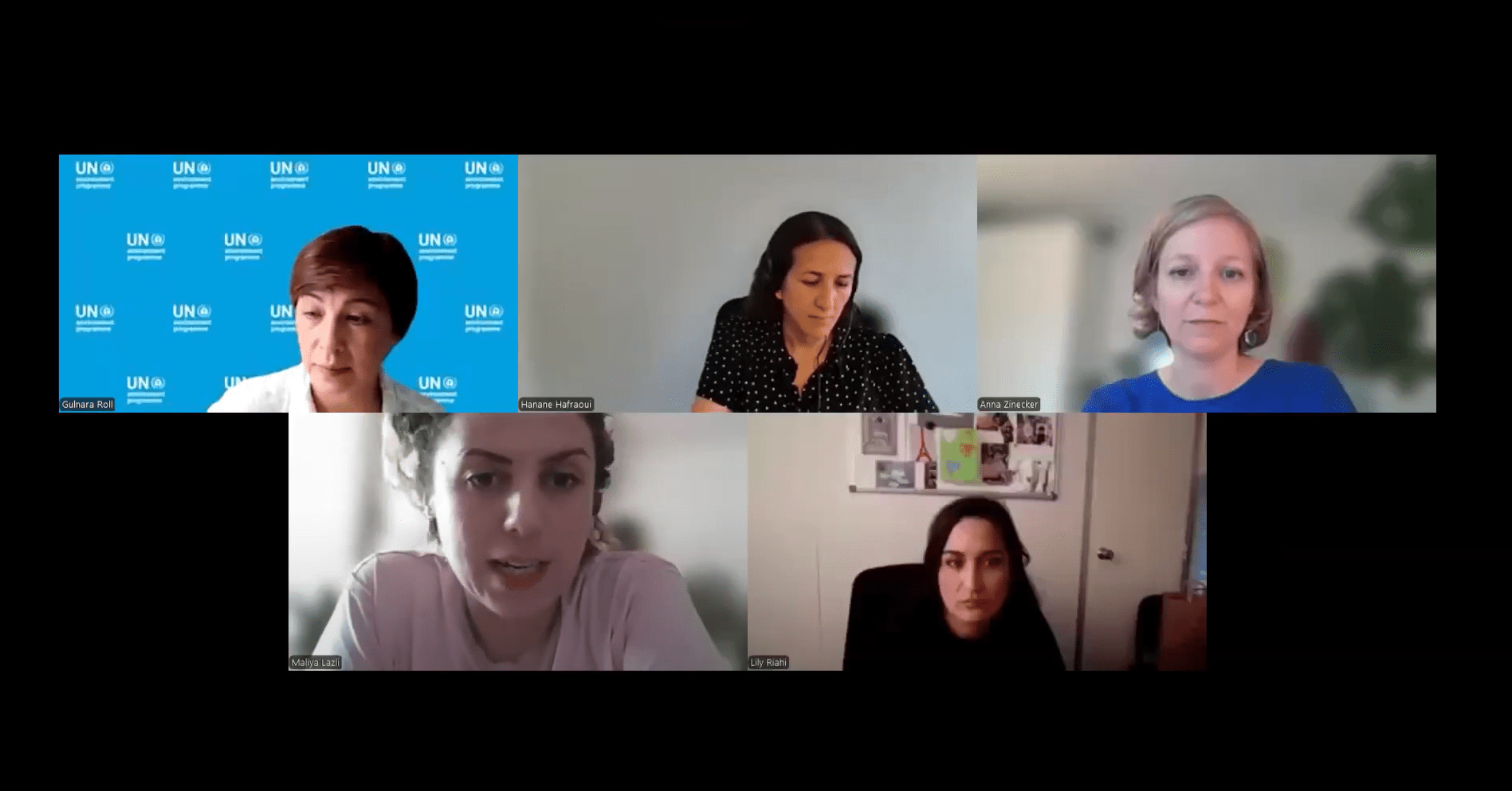COP30 Buildings and Cooling Pavilion Webinar Series Kicks Off with Global Call to Action
With the COP30 countdown underway and extreme heat intensifying across the globe, momentum is growing behind one of the most solution-driven spaces at this year’s UN Climate Conference: the COP30 Buildings and Cooling Pavilion.
On 26 June, the two UNEP-led initiatives, Global Alliance for Buildings and Construction (GlobalABC) and Cool Coalition, officially launched their joint Pavilion webinar series with an opening session titled “Launching the Road to Belém: Action, Vision & Opportunities.” Held just after the UNFCCC’s June Climate Meetings (SB62), the 40-minute session set out the Pavilion’s strategic framing, key deadlines, and ways for sponsors, members, and partners to shape its programme. The webinar marked the starting point for a growing coalition of stakeholders preparing for the Pavilion, which will be hosted in the Blue Zone of COP30 in Belém, Brazil, from 10 to 21 November 2025.
Gulnara Roll, Head of the UNEP Cities Unit, opened the session by placing the Pavilion in the context of the first Global Stocktake. She recalled the 10-year anniversary of the Paris Agreement and emphasized that, while countries have lowered projected warming from 4 to 2.5 degrees Celsius, much more remains to be done. Roll pointed to widening adaptation finance gaps and the urgency of addressing needs in urban infrastructure, stressing that buildings and cooling are essential tools for both mitigation and adaptation, including initiatives on food systems, ecosystem restoration, and subnational delivery.
Maliya Lazli, Programmes Expert at UNEP GlobalABC and moderator of the session, introduced the Pavilion’s overarching theme of “Creating Resilient Communities with Sustainable Cooling, Better Buildings, and Smarter Materials.” She presented a detailed overview of the Pavilion’s space and objectives, underscoring its role as a platform for implementation through strategic visibility, coalition-building, and policy influence. Lazli also announced that the deadline for session proposals had been extended to 18 July, and encouraged GlobalABC and Cool Coalition members to propose either full 90-minute sessions or 30-minute pitches to be featured in the morning or afternoon blocks of the Pavilion programme.
Keynote speaker Anna Zinecker, Head of Component, Partnership for Energy Efficiency in Buildings (PEEB) focused on the structural finance gap that continues to undermine the decarbonisation of the built environment. She called for a clearer alignment of public and private capital with climate-resilient and zero-carbon buildings and cooling systems. Zinecker encouraged Pavilion partners to use COP30 as an opportunity to showcase investment-ready solutions and leverage mechanisms, such as Article 6 and multilateral funding channels.
Lily Riahi, Head of the UNEP Cool Coalition Secretariat, shared outcomes from the recent Global Cooling Pledge Signatories Focal Points Meeting in Bonn, which was co-hosted by Germany, Italy, the UAE, and the COP30 Presidency. She announced several strategic initiatives set to be launched at COP30, including:
- the upcoming “Beat the Heat in Cities / Mutirão contra o Calor Extremo” initiative, a collaboration between UNEP and the COP30 Presidency to help cities deploy passive and nature-based cooling solutions;
- the EPIC Facility (Enabling Pledge Implementation for Cooling), a technical assistance and fund accelerator supported by a €2 million contribution from Italy; and
- the upcoming launch of an Intergovernmental Committee on Cooling and the Cool Champions initiative to elevate leadership in this space.
Riahi positioned the Pavilion as a key platform to advance these efforts and called for active partner engagement to build a coherent, action-oriented narrative across the programme.
Hanane Hafraoui, Programme Manager at UNEP GlobalABC, closed the session by reflecting on the strong visibility of buildings and construction at the SB62 meetings, where the sector featured in multiple high-level discussions and events. Among the key takeaways from SB62, she emphasized that technology, policy, data, and finance must move together to deploy solutions at scale. In this context, she highlighted the value of a one-stop resource—the GlobalABC and Solar Impulse Foundation’s Blueprint for a Solutions Deployment Platform, to guide replicable and cost-effective action. She pointed to growing international support for the Intergovernmental Council for Buildings and Climate (ICBC), with the ICBC Ministerial Meeting to be held within the first week of COP30, as a sign of rising ambition among governments. Hafraoui stressed that the Pavilion offers an unparalleled opportunity to elevate built environment solutions across mitigation, adaptation, and resilience. She called for bold, implementation-ready contributions that reflect the sector’s diversity and urgency.
For governments, cities, financial institutions, and civil society actors working across buildings and cooling, the road to Belém is now open, with the COP30 Pavilion providing a strategic platform to drive ambition, connect initiatives, and embed resilient, equitable infrastructure solutions at the heart of climate negotiations.
The second webinar in the series, Sustainable Construction in Brazil: Bio-based Materials for a Living Amazon, will take place on 22 July and will highlight Brazil’s leadership in nature-based construction and its broader relevance for climate action.

